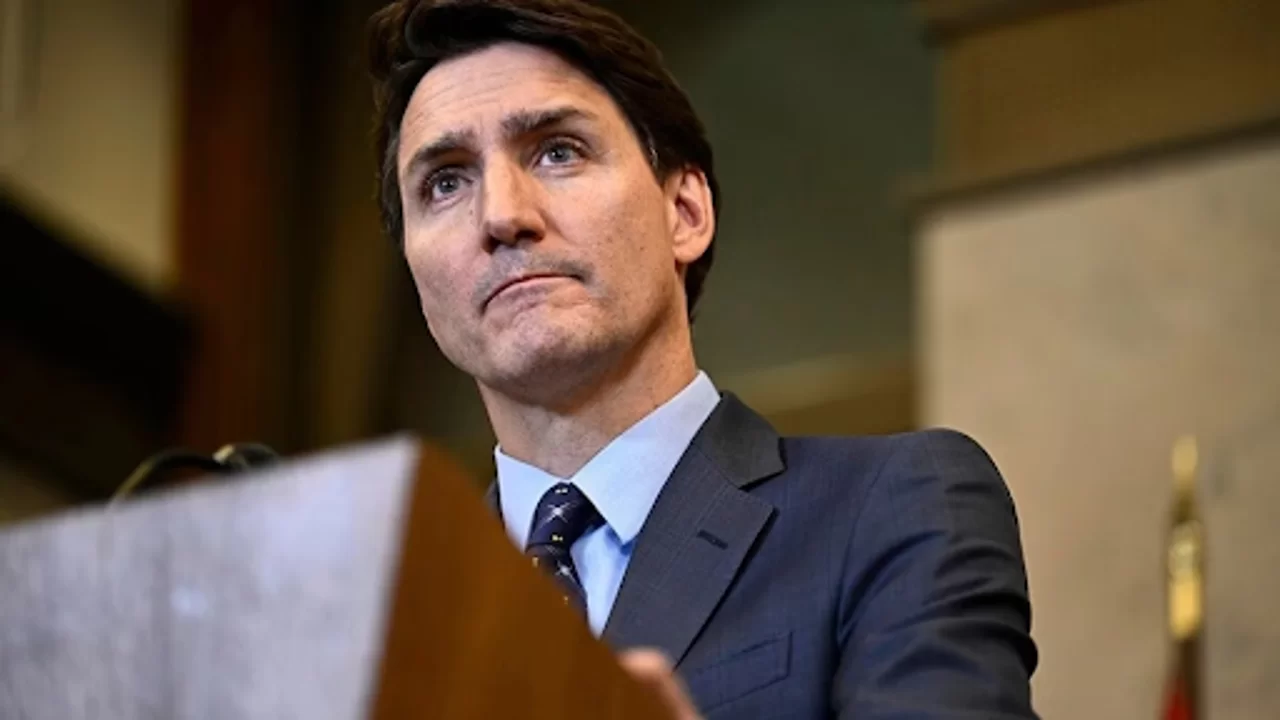
Canadian Prime Minister Justin Trudeau. Image: Business Today
Canadian Prime Minister Justin Trudeau has officially acknowledged the presence of Khalistani supporters in Canada, a statement that comes amid growing tensions between Canada and India. The two nations have been embroiled in a bitter diplomatic standoff since the killing of Hardeep Singh Nijjar, a designated Khalistani terrorist, in June 2023. Trudeau’s remarks, made during Diwali celebrations on Parliament Hill in Ottawa, came as part of an effort to clarify the distinction between the views of Khalistani supporters and the broader Sikh community in Canada.
Trudeau, speaking at the Diwali event, acknowledged that there is a base of Khalistani support in Canada but emphasized that these individuals do not represent the entire Sikh community. He also drew a parallel, stating, “There are many supporters of Khalistan in Canada, but they do not represent the Sikh community as a whole. Similarly, supporters of the Modi government in Canada don’t represent all Hindu Canadians.” This acknowledgment comes as the diplomatic relationship between the two countries continues to sour over the allegations surrounding Nijjar’s death.
The tensions between Canada and India escalated when Trudeau accused India of potentially being involved in Nijjar’s killing. Nijjar was shot dead outside a gurdwara in British Columbia, sparking a fierce diplomatic dispute. Trudeau’s accusation was based on intelligence information, although he admitted there was no concrete proof at the time. This led to widespread criticism from India, which denied any involvement and rejected the claims made by the Canadian government.
In the wake of these tensions, a violent altercation took place outside a Hindu temple in Brampton, Canada, where pro-Khalistan protesters clashed with worshippers. The confrontation, which was captured on video, showed protesters waving Khalistani flags and engaging in physical altercations with those attending the temple. Trudeau condemned the violence, stressing that Canadians have the right to practice their faith freely. He also commended the swift response of local police, who managed to diffuse the situation.
India’s Ministry of External Affairs voiced concern over the safety of Indian nationals in Canada, calling the altercation an act by anti-India elements. India also reiterated its stance on the ongoing issue, with spokesperson Randhir Jaiswal noting that despite the tensions, the Indian consulate had successfully issued over 1,000 life certificates to Indian and Canadian applicants, a sign of continued diplomatic engagement despite the strained relations.
As the diplomatic crisis deepens, Canada has accused India of being involved in Nijjar’s death, though no definitive evidence has been provided. Trudeau recently admitted that the accusations were based on intelligence information shared by Canadian intelligence agencies and their Five Eyes allies, but no physical evidence had emerged to support the claims. Meanwhile, India has rejected these accusations and criticized Canada for harboring pro-Khalistan extremists, whom it believes pose a threat to India’s security. New Delhi has repeatedly urged Canada to take action against these groups, but its requests have been largely ignored.
The tensions between the two countries show no signs of easing. After the killing of Nijjar, Canadian police reportedly suggested that six Indian diplomats might have been involved in the incident. India, however, dismissed these claims as “preposterous,” and in a strong rebuttal last month, India rejected allegations that its High Commissioner to Canada was a person of interest in the case. Despite repeated requests from India, Canada has yet to provide any conclusive evidence to back the allegations.















